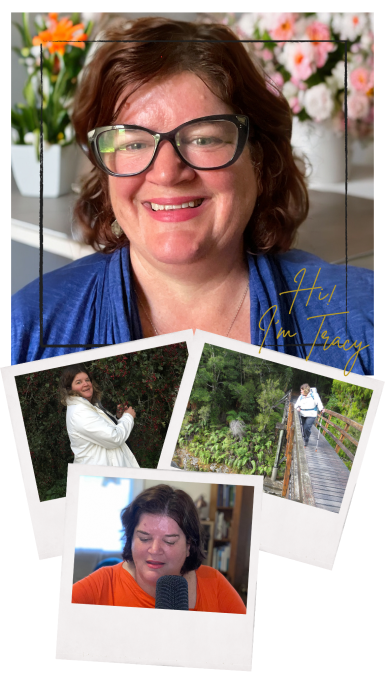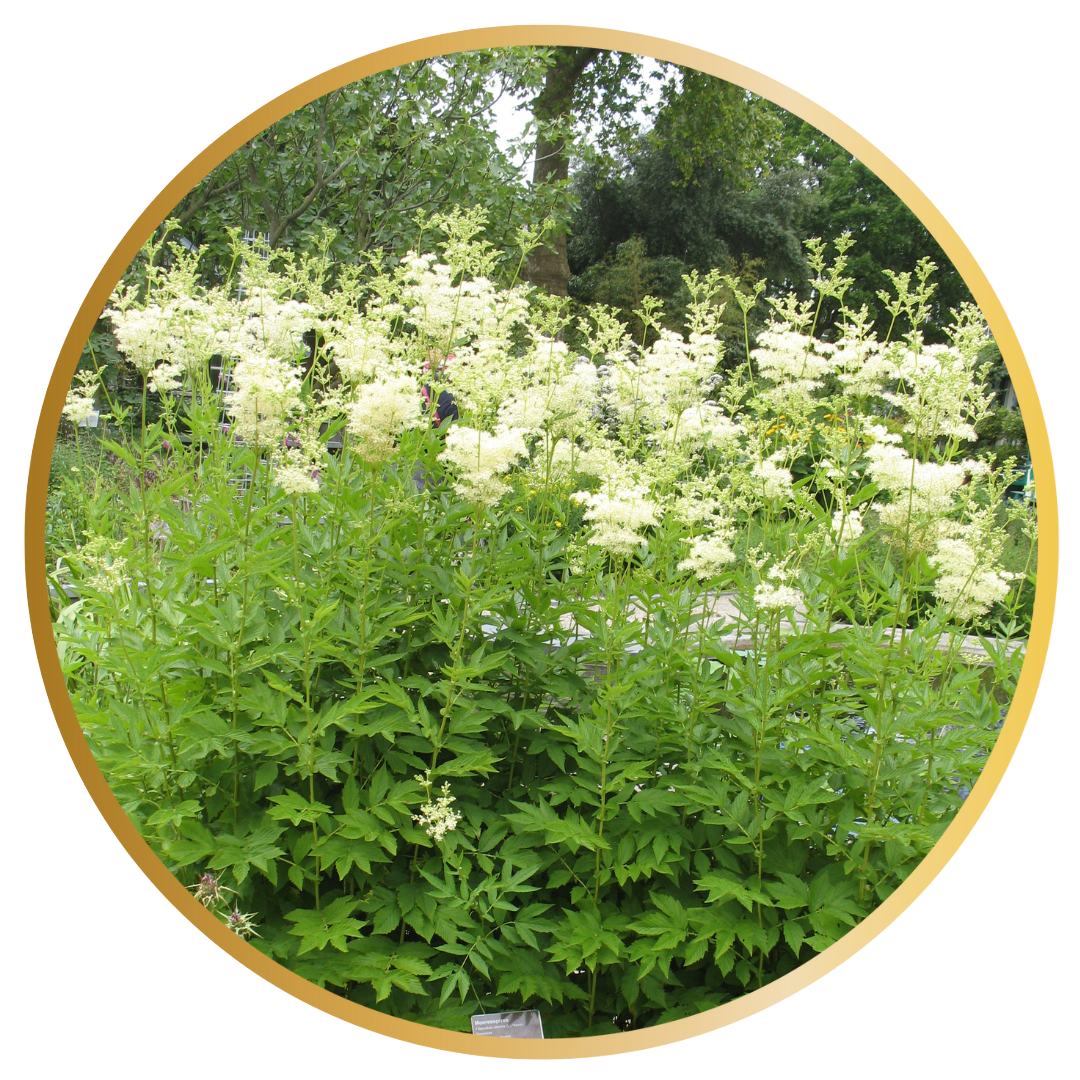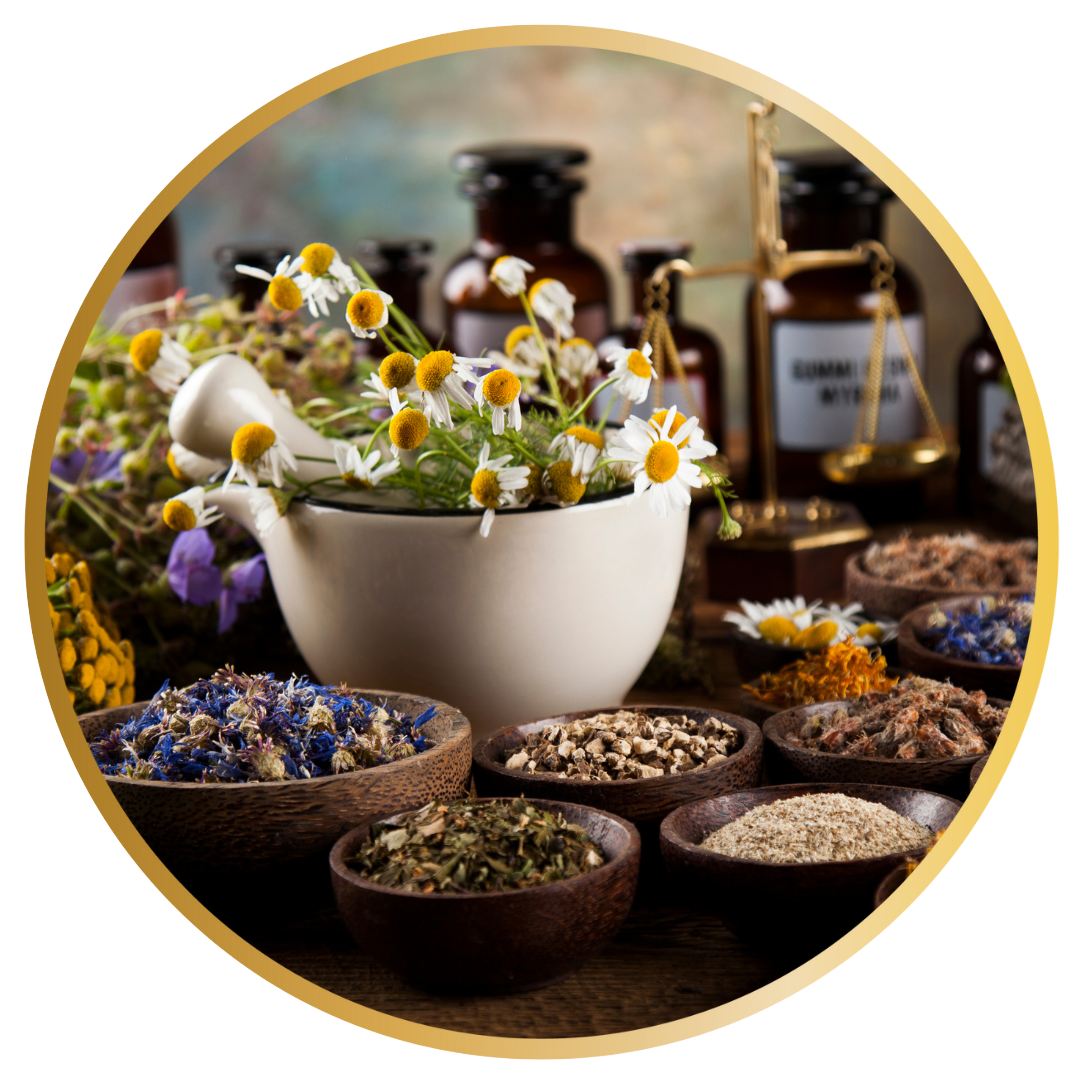
with life-tested experience in
DIGESTIVE AND STRESS-RELATED CONDITIONS
Combining the art and science of Western Herbal Medicine with neuroscience informed mind and body based practices. Ready to take your health and well-being to your next level?

IN THE WORDS OF MY PATIENTS...
LOUISE BLAKE
When I first came to see Tracy my life was full of anxiety. I had been experiencing panic attacks and was feeling generally fearful of life. Each session has bought me balance and clarity that has really supported my healing. I have not had a panic attack since my first session.
JULIE HATHERLEY
At the moment my life has been very stressful. I've been able to take a few tips along the way.
I still have a long way to go, but your emails are helping change how I look at things. Keep them coming!!!
Your body knows exactly what it needs to heal itself. My job, as your herbalist, is to connect you with the herbs your body is already searching for.
ABOUT TRACY
Hi! I'am
TRACY TUTTY
A "you'll just have to live with it" IBS diagnosis prompted my journey into the world of Western Herbal Medcine. I completed a BSc (Hons) Health Sciences in Herbal Medicine. As it was a research based degree, my thesis compared IBS treatments from the perspective of Western Herbal Medicine and Allopathic Medicine. I don't have IBS now.
I qualified in 2010 and focused on supporting digestive disorders with an IBS Clinic in Crouch End, London. My own experience of IBS and the feedback from my patients, led me to train in stress management, somatic practices to regulate your nervous system, and high performance coaching.
I now practice in the Wairarapa in New Zealand where I specialise in helping drained professionals and business owners naturally boost their energy, their calm. and heal their digestion once and for all. No more relapse and remit that is so typical of IBS, we focus on using all your resources - your thoughts, your feelings, and your biology for sustainable recovery.
WHY WESTERN HERBAL MEDICINE?

The use of plant based medicine dates back to Hippocrates around 400BC. Although earlier documentation of plant medicine can be found on the clay tablets of Sumaria and has been dated to around 3,000BC. A traditional medicine, modern research has confirmed many traditional uses of plant medicine.
Researchers often looked for inspiration from the plants and created drugs from synthesised plant chemicals. Aspirin gets its name from the plant in which salicylic acid was used to create acetylsalicylic acid. Spiraea ulmaria, now known as Filipendula ulmaria or Meadowsweet.
Unlike aspirin, Meadowsweet also contains a variety of other phytochemcials or plant chemicals such as tannins, and polysaccarides, which counteract the known side effects of salicylic acid. The overall synergy of the phytochemcials within Meadowsweet mean in additon to reducing inflammation, Meadowsweet also heals the gut wall.
WHAT HAPPENS IN A HERBAL MEDICINE CONSULTATION?
It starts with a conversation. Tracy brings together coaching, mindfulness and herbal medicine in each consultation so the consultation becomes part of the medicine.
You'll be asked a variety of questions from how you're feeling, what's going on in your life, and other presenting conditions. We'll review your nutrition choices, lifestyle choices and get really clear about what wellness means for you.
During the consultation, Tracy will discuss a proposed way forward which will include a detailed discussion on your herbal medicine and why those particular herbs. After the consultation, you will receive a detailed treatment plan, so there's no second guessing your recovery protocols.

COMBINING THE ART AND SCIENCE OF PLANT MEDICINE WITH NEUROSCIENCE INFORMED MIND AND BODY BASED PRACTICES.
FREE HERB INSPIRED RESOURCES
Are you interested in learning more about plant medicine?
Imagine a world where you woke up a bit poorly one morning and you reached into your cupboard and created a herbal medicine perfectly suited to you and how you were feeling in that moment.
Take the next step and join us in our Herbs for Health monthly email series.
Tracy Tutty
Receive a free Tasty Herbal Tea Recipe book when you register your interest in joining the waitlist for
The Secret Art of Creating a Tasty Herbal Tea.
Would you like to learn more about how to use herbs for your own health and well-being? Join our free Herbs for Health email series. Each month you'll receive an email packed with information on our herb of the month just like the email in the video above.
FREQUENTLY ASKED QUESTIONS
WHAT IS WESTERN HERBAL MEDICINE?
Herbal medicine, also referred to as botanical medicine, phytomedicine or phytotherapeutics, is the use of plants for medicinal purposes. Herbalists may use the whole plant, aerial parts of the plant, roots, berries, leaves or flowers. Herbalists refer to the plants as encouraging a particular action within the body.
Although more research is currently being undertaken to understand further exactly how herbal medicine works, researchers are studying plant medicines and tend to describe these actions according ot the plant chemicals or phytochemicals (phyto means plant) thought to trigger the action. Not all research is conclusive, but a number of studies have confirmed the traditional use of herbs.
HOW IS WESTERN HERBAL MEDICINE DIFFERENT TO TRADITIONAL CHINESE MEDICINE?
According to a study conducted by Wharton professor, Lisa Bolton and her team ("Health Remedies: From Perceptions to Preference to a Healthy Lifestyle"), Western Herbal Medicine "is closely linked to the scientific method and emphasizes empirically measurable biochemical processes that drive disease, its treatment and health". Traditional Chinese Medicine (TCM) focuses on balancing yin and yang, the key aspects within vital energy known as Qi; using a combination of diet, internal substances derived from plants, animal or mineral sources; acupressure, massage and moxibustion.
HOW IS WESTERN HERBAL MEDICINE DIFFERENT TO HOMEOPATHY?
Homeopathy is based on the premise of treating "like with like"; that is using a diluted substance which would trigger a similar condition than the one that is being treated. An individual is treated with highly diluted substances which are usually prescribed in tablet form.
Homeopaths believe a remedy diluted to 12C (centesimal) contains the vibration of the substance (it no longer contains the physical substance). At 30C, the remedy is diluted further. This is very different from treating with herbs which contain a combination of phytochemicals, many of which researchers have isolated from the plant to confirm their action.
HOW ARE THE HERBS PRESCRIBED?
Each herbal prescription is bespoke to you. Herbs may be prescribed in the form of a tincture (which is when the herbs are steeped in alcohol and water), aromatic waters, glycetracts, a tea, a decoction, a cream, ointment or pessaries. During the consultation, we will discuss how best to take your herbal medicine as it's important that the efficacy is maximised through the type of remedy applied but also that it fits with your lifestyle.
At the end of your consultation, Tracy will talk through the herbs and the reason for their inclusion. You will receive an email with instructions on how to order your herbs within 24-hours of your appointment.
We use suppliers who only serve qualified herbalists. This ensures the efficacy of the product through plant verification and standardised testing of the manufacturing process.
© Copyright 2025 Tutty Group Ltd. All Rights Reserved.